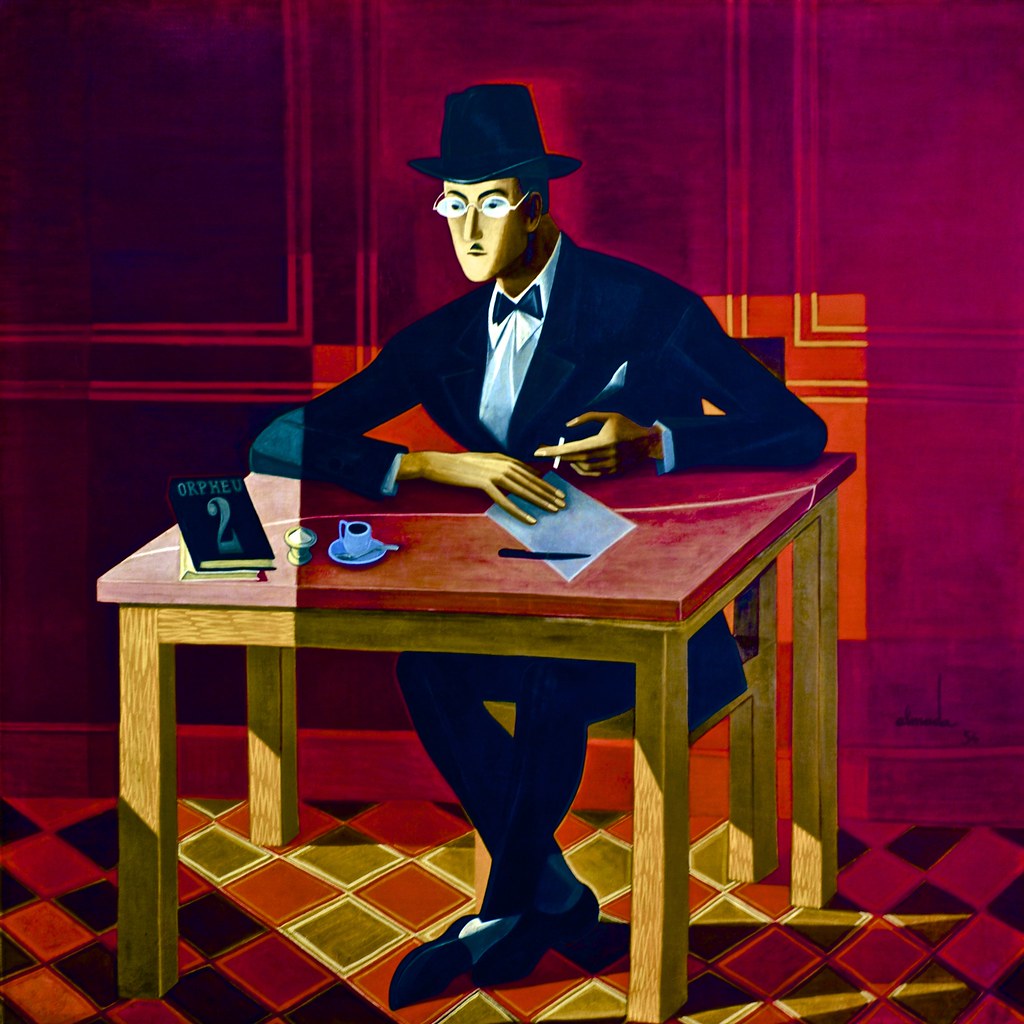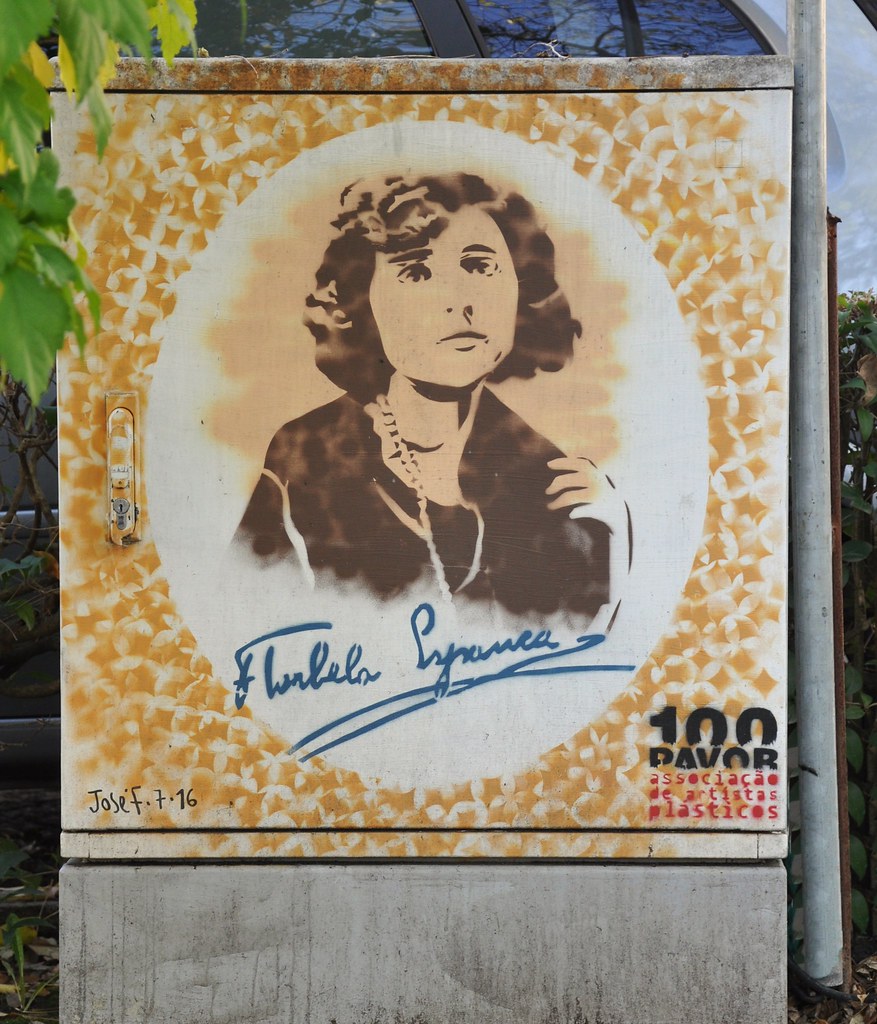Portuguese literature offers us a wealth of precious talents. But how many of those poets do you really know?
Here is a list of five renowned Portuguese poets you must know whenever you are a fan of poetry or only want to know more about the Portuguese culture.
1. Fernando Pessoa
Fernando Pessoa (1888-1935) was one of the most important poets of the Portugal and a central figure in Portuguese Modernism. Lyrical and nationalist poet cultivated a poetry focused on the traditional themes of Portugal and his nostalgic lyricism, which expresses reflections on his “deep self”, his worries, his loneliness and his boredom.
Fernando Pessoa was several poets at the same time, so he created heteronyms – poets with their own personalities who wrote his poetry.

Your Eyes Go Sad
Your eyes go sad. You’re not
Listening to what I say.
They doze, dream, fade out.
Not listening. I talk away.
I tell what I’ve told, out of listless
Sadness, so often before …
I think you never listened,
So you’re away you are.
All of a sudden, an absent
Stare, you look at me, still
Immeasurably distant,
You begin a smile.
I go on talking. You
Go on listening – your own
Thoughts you listen to,
The smile as good as gone,
Until, through the loafing
Afternoon’s waste of while,
The silence self-unleafing
Of your useless smile.
– Fernando Pessoa
-
Florbela Espanca
Florbela Espanca (1894-1930) was a Portuguese poet, author of sonnets and important tales in Portuguese literature. She was one of the first feminists in Portugal.
Her poetry is known for a peculiar style, with a strong emotional content, where suffering, loneliness, and disenchantment are combined with the desire to be happy.

To Love I want to love, love with abandon! To love for love’s sake: here, there, this one, that one, another, and everyone. To make love, to be in love, and to love no one. To remember? To Forget? Makes no difference. To hold on or let go? Neither bad nor good. But to say you can love one your entire life, is a lie. There is one Spring in each life: You must sing it like Spring, floridly, For if God gave us voice, it was to sing! And if one day I must be dust, ashes, and nothing let my night be a dawn, let me know how to lose myself . . . to find myself . . . Florbela Espanca, “Amar”, Charneca em Flor.
3. Sophia de Mello Breyner Andresen
Sophia de Mello Breyner Andresen was one of the most important Portuguese poets of the 20th century. She was the first Portuguese woman to receive the most important literary award in the Portuguese language, the Camões Prize, in 1999.

This is the perfect hour This is the perfect hour when a hush descends On our muted human murmurings And inside us finally there speaks The grave voice of indolent dreams. This is the hour when roses are the roses That flowered in the Persian gardens Where Saadi and Hafiz saw and loved them. This is the hour of the mysterious voices Chosen and summoned by my desires. This is the hour of the long conversations Held between leaf and leaf. This is the hour when time is abolished And I do not even know my own face. - Sophia de Mello Breyner Andresen
4. Luís Vaz de Camões
Luís Vaz de Camões is considered one of the most important authors of Portuguese literature. He was born in the year 1524, in the city of Lisbon. Much of what is known about his life is nothing more than speculation. However, scholars say he was a soldier, lost an eye in Morocco, and lived for a few years in India, Macau and Mozambique.
The author, who died in 1580, wrote Os Lusíadas, an epic poetry book of Portuguese classicism. Thus, it is possible to observe, in the writer’s works, the following characteristics of this literary school: regular verses, idealized love and woman, and references to Greco-Latin references.
Waters of gentle Tagus, calmly flowing Through these green fields ye freshen as ye flow, On flocks and herds, plants, flowers, all things that grow, On shepherds and on nymphs delight bestowing; I know not, ah! sweet streams, despair of knowing When I shall come again; for as I go, And ponder why, ye fill me with such woe, That in my heart a deep distrust is growing. The Fates have e'en decreed this sad adieu, Aiming to change my joys into despair, This sad adieu that weighs upon my years: Of them complaining, yearning after you, With sighs I shall invade some distant air, And trouble other waters with my tears. - Luís Vaz de Camões
5. Miguel Torga
Miguel Torga, pseudonym of Adolfo Correia da Rocha, was one of the most influential Portuguese poets and writers of the 20th century. He stood out as a poet, short story writer and memorialist, but he also wrote novels, plays and essays.

Mortification Trample down my verses, dissatisfied Muse! Not even one deserves you. They are but bitter fruit no one wishes to Eat. They lack ingenuity, and the sun ripening That which is born well. Spit out in disgust and anger At every image which disfigures you. Negate this impure rhyme Brought along through hearsay. Report these counted syllables, The digital trace of an escapee Leaving in his flight his fingerprints. And cut off at once the wings you offered me. You summoned me to fly; But my whole body was in denial Of that celestial impetus. - Miguel Torga, from Penas do Purgatório (1954)








